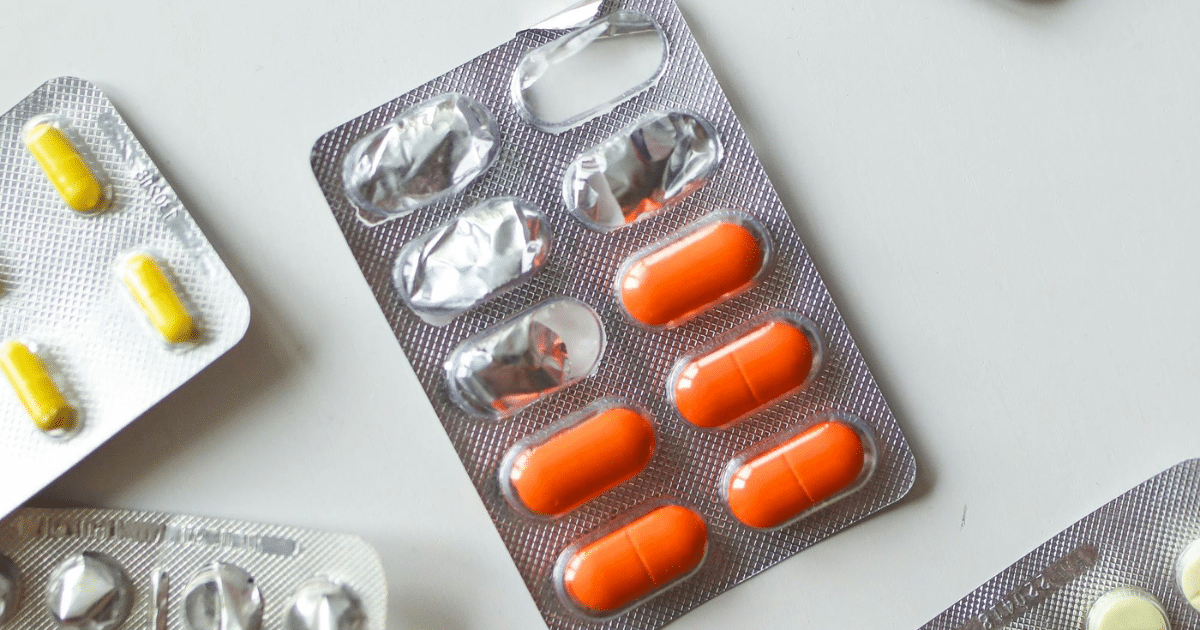Gabapentin is a member of the class of drugs used in the treatment of nerve pain, epilepsy, and in some cases, anxiety. Though it can be considered a comparatively safe drug when used as per the prescription, an overdose of gabapentin can lead to serious health outcomes, whether mistakenly or intentionally. Knowing the symptoms of overdose, how it appears, its side effects, and appropriately reacting to it can rescue lives.
In this blog, we are going to discuss what happens if you take too much gabapentin, the symptoms of an overdose, and how to avoid an overdose. This guide will provide the information you require to encourage the safe use of gabapentin, whether you are using the medication or taking care of a loved one.
The Risks of Gabapentin Overdose and What You Need to Know
Most people do not have adverse reactions to gabapentin. It is sold under the brand name Neurontin. However, with its growing application, in some cases, it is used off-label as a treatment for mental health conditions.
This has increased the cases of its misuse and unintentional overdose. The risk is even higher when high doses of gabapentin are consumed or when combined with other depressants of the central nervous system, such as opioids, alcohol, or benzodiazepines.
While gabapentin isn’t classified as a controlled substance in all jurisdictions, it can lead to abuse because of its sedative and euphoric properties when consumed in high dose.
An overdose of more than the recommended dosage may cause gabapentin toxicity, damage the brain, and even become a medical emergency in severe cases. According to the FDA, gabapentin may cause severe breathing problems when used in high doses or with other depressants.
Silicon Valley Recovery Center
What Happens When You Take Too Much Gabapentin?
Consuming excessive amounts of gabapentin can overwhelm the central nervous system. Gabapentin functions by changing the activity of neurotransmitters in the brain. This medication mainly calms down nerve activity. When this calming effect is excessive, it could be dangerous, as it can be highly exaggerated.
What happens if you take too much gabapentin?
- The first symptoms that could be experienced are extreme drowsiness or dizziness.
- You may experience problems with coordination and difficulties in walking or communicating clearly.
- When the levels are built high, the risk of developing seizures, confusion, or even coma is high.
- Severe cases can impact vital functions such as breathing and heart rate.
Substantial amounts of gabapentin may cause gabapentin toxicity, where the drug passes through the body and overwhelms the standard processing of the drug by the body. This effectively prevents the elimination of the drug from the body.

Recognizing Gabapentin Overdose Symptoms
It is essential to be aware of the early warning symptoms of a gabapentin overdose. The symptoms may differ depending on the individual and the excessive dosage.
Common Overdose Symptoms Include:
- Loss of consciousness.
- Rapid or slow heartbeat.
- Tremors.
- Blurred vision.
- Unresponsiveness.
- Loss of coordination.
- Difficult breathing.
These symptoms of overdose might appear slowly or rapidly. Whether you see some of these signs in yourself or another person, it is essential to take action immediately.
Potential Side Effects of Excessive Gabapentin Dosage
Even regular doses of gabapentin can bring about side effects. However, an excessive dosage increases the chances of side effects.
Side effects that are associated with the excess use of gabapentin include:
- Memory loss and Confusion.
- Poor strength.
- Muscle twitching.
- Digestive Disorders, i.e, nausea or vomiting.
- Changes in mood, i.e, agitation or depression.
- Impaired motor skills.
Rarely, but overdose may result in life-threatening conditions such as coma or failure of multiple organs, especially in individuals with underlying health conditions. Also, in individuals who consume other central nervous system depressants.
Gabapentin Toxicity and Its Impact on the Central Nervous System
High intake of the drug that is unable to be metabolized safely leads to the development of gabapentin toxicity. It is hazardous since gabapentin primarily acts upon the central nervous system (CNS), which regulates vital mechanisms in the body, including respiration, heart rate, and alertness.
Some examples of CNS effects are – loss of muscle, changes in the state of consciousness, inability to speak or think, impaired mental alertness, and many more.
In extreme cases, the brain can have difficulties controlling the body and put the individual at risk of coma or death. The risk of toxicity associated with gabapentin can increase in patients with kidney problems since the renal excretion system is used as the primary means of excretion of the drug.
According to the National Institutes of Health (NIH), patients with impaired renal function may accumulate higher levels of gabapentin, increasing the potential for neurotoxicity.
When to Seek Medical Attention for Gabapentin Overdose
Prevention of gabapentin overdose starts with education, awareness, and medication practices. This is how one can go about it practically:
- Follow your prescription and never increase the dose without a doctor’s permission.
- Avoid the combination of gabapentin with other sedatives, except when prescribed by your doctor.
- Keep drugs in safe places to avoid consuming them accidentally, particularly where there are children and pets in the house.
- Please do not share your prescription – it might not suit every condition.
- Discuss concerns or side effects with your doctor. They can increase or decrease your dose depending on your response.
Patients with kidney problems or those consuming other medications should be observed frequently to ensure safe usage. However, they do not face the risk of gabapentin toxicity or excessive dosing of the drug.
Silicon Valley Recovery Center
Silicon Recovery Valley Is Here to Help ith Gabapentin Overdose.
At Silicon Valley Recovery, we offer support to those people, including you or even a loved one, who are battling with misusing and developing dependence on gabapentin. We assist and support different detox and treatment services depending on your needs.
It may be challenging to stop and get detoxed, yet we have the resources to make it happen. Contact Silicon Valley Recovery and start receiving quality help. Here, we will lead you on your road to better recovery.

FAQs
What are the overdose symptoms if you take too much gabapentin?
Well, there are various symptoms of an overdose of gabapentin. However, they are disorientation, respiratory problems, and muscle clumsiness – in its severe form, there may be cramps or loss of consciousness.
How can excessive gabapentin dosage affect your side effects profile?
The overdose may worsen the adverse reactions in various aspects, which can be life-threatening as well. However, it includes dizziness, lethargy, and memory disturbances, as well as increasing the risk of respiratory insufficiency or coma.
What impact does gabapentin toxicity have on the central nervous system?
The toxicity of gabapentin affects the central nervous system, resulting in seizures, confusion, and unconsciousness, particularly when kidney function is impaired. For this reason, immediate intervention and evaluation are important to prevent lifetime damage.
How can a gabapentin overdose lead to respiratory depression?
Overdose of gabapentin, particularly in combination with depressants, may inhibit the respiratory brain stem, which results in life-threatening respiratory depression. This type of condition can be fatal without proper emergency care.
Silicon Valley Recovery Center
When should you seek medical attention for a gabapentin overdose?
After the use of gabapentin, you need to seek medical attention in case you experience some symptoms, such as shallow breathing, seizures, or unresponsiveness. Time intervals in the treatment can significantly increase the risk factors for complications.


